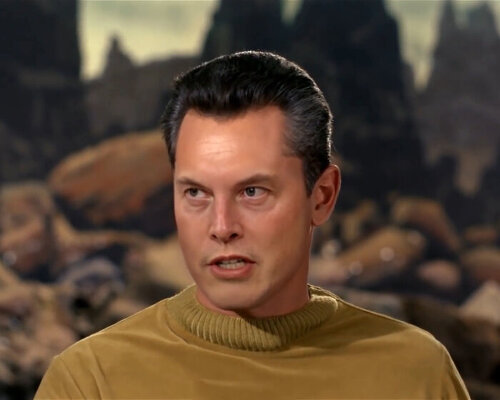Denmark residents can copyright themselves against deepfakes
Denmark to allow its citizens to copyright their own face, voice, and body so others can’t legally use them for AI-generated deepfakes. At the moment, it is proposed legislation, says Danish Culture Minister Jakob Engel-Schmidt, and once it takes effect, residents in Denmark can request to take down the AI-generated deepfakes that use their face and voice without permission. Reports say that they can also ask for compensation for the damages caused by the unreal videos. So far, the proposed law doesn’t stop content creators who produce parodies or satires.
The AI-generated deepfakes can be used to spread fake news and disinformation. In the past, Elon Musk and Jeff Bezos have been subjects of these fake videos, as they starred in a Star Trek clip. There’s also a video of Mark Zuckerberg delivering a speech about Facebook, yet a slight delay in his lip movement is noticeable even if he’s reading from a teleprompter. These AI-generated deepfakes aren’t just videos; they can also be photos, as seen in the series of portrayed arrests of the now US President Donald Trump.
Mark Zuckerberg’s deepfake delivering a speech | image courtesy of bill_posters_uk via Instagram | read more here
Proposal to amend the law begins in summer 2025
In reports by The Guardian and CNN, there’s a unanimous agreement between the parties on the said update in Denmark’s copyright law with regard to the AI-generated deepfakes. The news adds that nine out of 10 members of the parliament approve the proposal and that the Danish Culture Minister Jakob Engel-Schmidt says that the country’s current legislation doesn’t protect people from these fake videos and images. If the law passes, people can ask users on social media platforms or websites to take down the AI-generated deepfakes involving them, or they will face legal consequences, including hefty fines. In this way, creatives and artists, to name a few, can also continue fighting against being used by other users to create deepfake content of their work or performances. At the moment, the Department of Culture in Denmark plans to go ahead with the proposal to amend the copyright law in the country in terms of AI-generated deepfakes before the summer of 2025.
The resumption of the amendment is expected to pick up again in the fall of 2025. In a report by Euronews, countries around Europe and the UK have rules on the use of AI-generated deepfakes. France updated its laws in May 2024 with the SREN Law so users who share someone’s deepfakes without their permission, even if labeled, can face between one and three years of imprisonment and a fine of up to 75,000 euros. The UK focuses more on sexual deepfakes under the criminal law Online Safety Act 2023, with the violators facing up to two years of imprisonment. There’s also the EU Artificial Intelligence Act, enforced since August 2024, where creators must clearly label deepfake content as AI-generated and with watermarks of tags. However, unlike Denmark, these countries are yet to allow their citizens to copyright themselves against the use of their face and voice on AI-generated deepfakes.
Jeff Bezos’ deepfake in a Star Trek-inspired clip | image courtesy of thefakening | read more here
Elon Musk’s deepfake also stars in the Star Trek-inspired clip | image courtesy of thefakening
deepfake of President Donald Trump’s arrest | image courtesy of @EliotHiggins via X | read more here
these image and videos are generated by AI | image courtesy of @EliotHiggins
project info:
issue: Copyright Law on AI-generated deepfakes
government: Denmark, The Danish Parliament | @denmarkdotdk
culture minister: Jakob Engel-Schmidt
The post denmark to pass law that lets citizens copyright their face and voice against AI deepfakes appeared first on designboom | architecture & design magazine.

